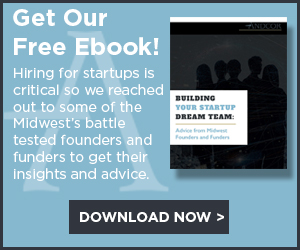“Should we pursue customers or focus on raising capital?”
This is a common discussion topic in the startup world. Accelerators have a subset of startups that often include companies with small amounts of both already in hand so the question of next step seems to be a real choice in those contexts. I personally have had this discussion with numerous entrepreneurs and startup teams in my role as an Alchemist Accelerator mentor. Investors always ask about “traction”, i.e. “how many customers do you have?” Often the answer to “how do we get more customers” is “we need money to build our product.” So there it is: “chicken or egg”.
But I don’t see it that way. I don’t believe there is a choice. The answer is always “get more customers.”
I say this for three reasons. The first is my experience running and growing a small business. Whenever you are growing a small business variations in sales forecasts are not potholes, they are sink holes into which you can fall and never be seen again. If you lose an account or do not close on a proposal you can suddenly be in the position of not covering fixed costs. Staying in business in these cases is usually implemented through reduction in staff which means a big step backward in the creation of your most important assets – your team and your culture. I first heard the truth of these situations from my mentor at Honeywell, Brian Isle, who told me during a head count discussion “Revenue solves all problems.” Revenue means customers so if that is going to be the key to success once you are off the ground you might as well get used to it from the start.
My second reason comes from a recent dialogue I had with a venture capitalist who was also a very successful founder, i.e. he has the knowledge of painful experience. He told me, after hearing our pitch on a new digital therapy platform, “We look for two things in the companies in which we invest:
Investors look for customers in hand and the ability to get more customers – end of story. If you do not have customers you are at a severe disadvantage. If you cannot show you can easily get more customers, you are at a severe disadvantage. If you are not already in the process of adding customers every day, you are at a severe disadvantage.
I can hear the push back from the crowd: “If I already have customers and am adding more why do I need investors?” The question smacks of inexperience. Growth always requires capital and fast growth requires more capital, investment capital. Revenue solves all problems.
Finally, and most important, customers are the key to sustainable success. More specifically, understanding who your customers are and what they need is the key to success. I recently read a startup advice post on Medium that talks about defining your product clearly before pushing ahead with the business. I liked much of the advice in the post but believe that it has the wrong point-of-view. Worrying about your product before you know your customer, intimately know your customer, is a technology push. A push solves your problem of increasing sales for your product. Success comes from knowing your customer and solving their problem, not yours.
When you are a company pursuing a business model based on Monthly Recurring Revenue (MRR) your fundamentals regarding customers are even clearer. In the subscription economy there are three key metrics – MRR less operating costs (number of customers), churn (loss of customers), and customer acquisition cost. Every measure of your business is about customers.
Focusing on customers is often hard for entrepreneurs because they are high energy, emotional problem solvers. They rush to solve problems – sometimes the first problem they encounter, often before the problem is worthy of their time. Getting to know your customer and understanding their problems breaks the chicken or egg conundrum. Strive to meet Steve Jobs’ standard on the matter:
Customers solve all problems.
Scott Nelson is an accomplished C-Level executive experienced in strategic and operational leadership with particular focus on Internet of Things (IoT) and Digital Health. For over 25 years Scott has led product development and entrepreneurial business growth as both a technology and business leader. He enjoys working with cross functional teams pursuing rapid growth through innovation and technology application.










